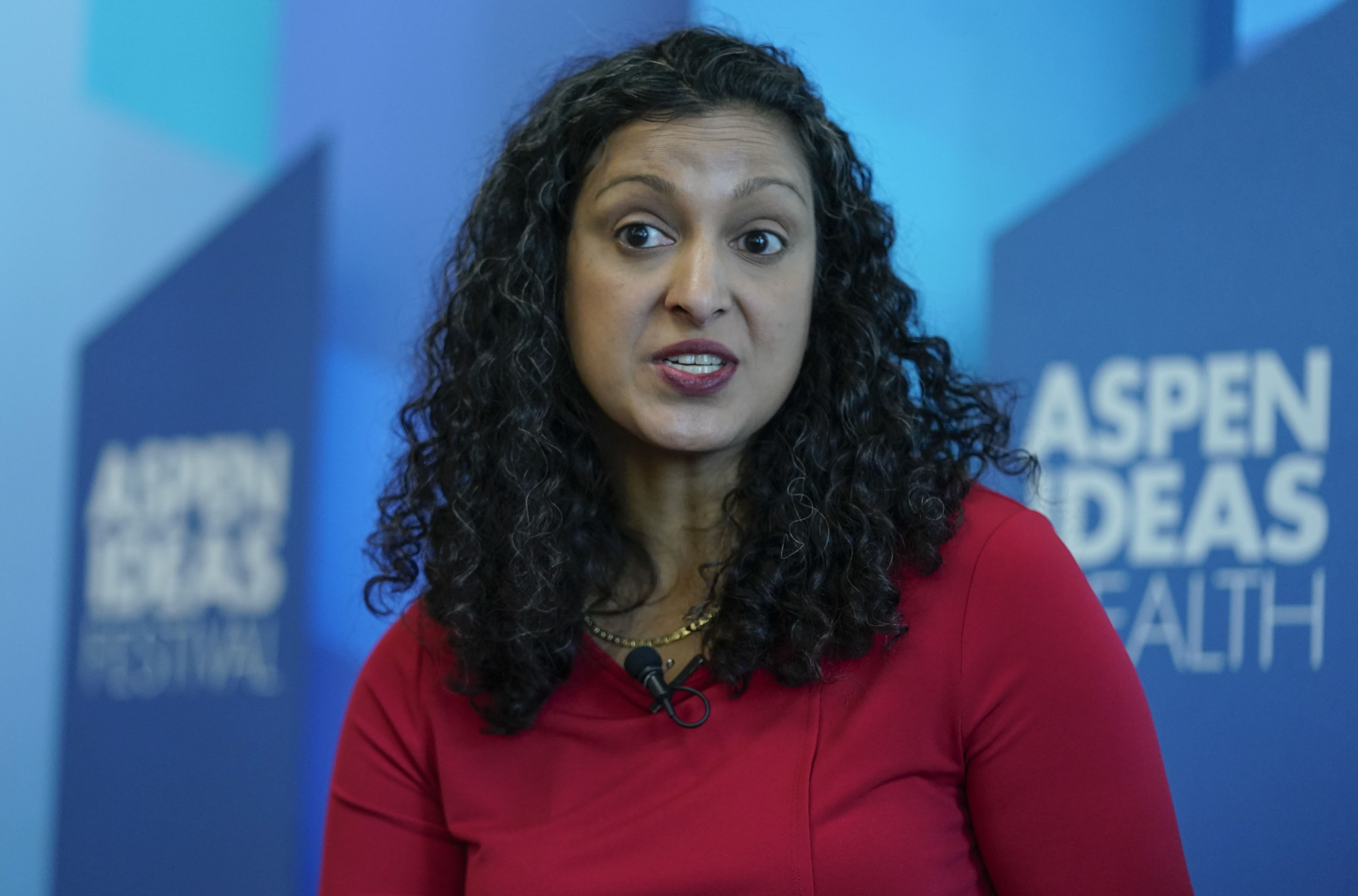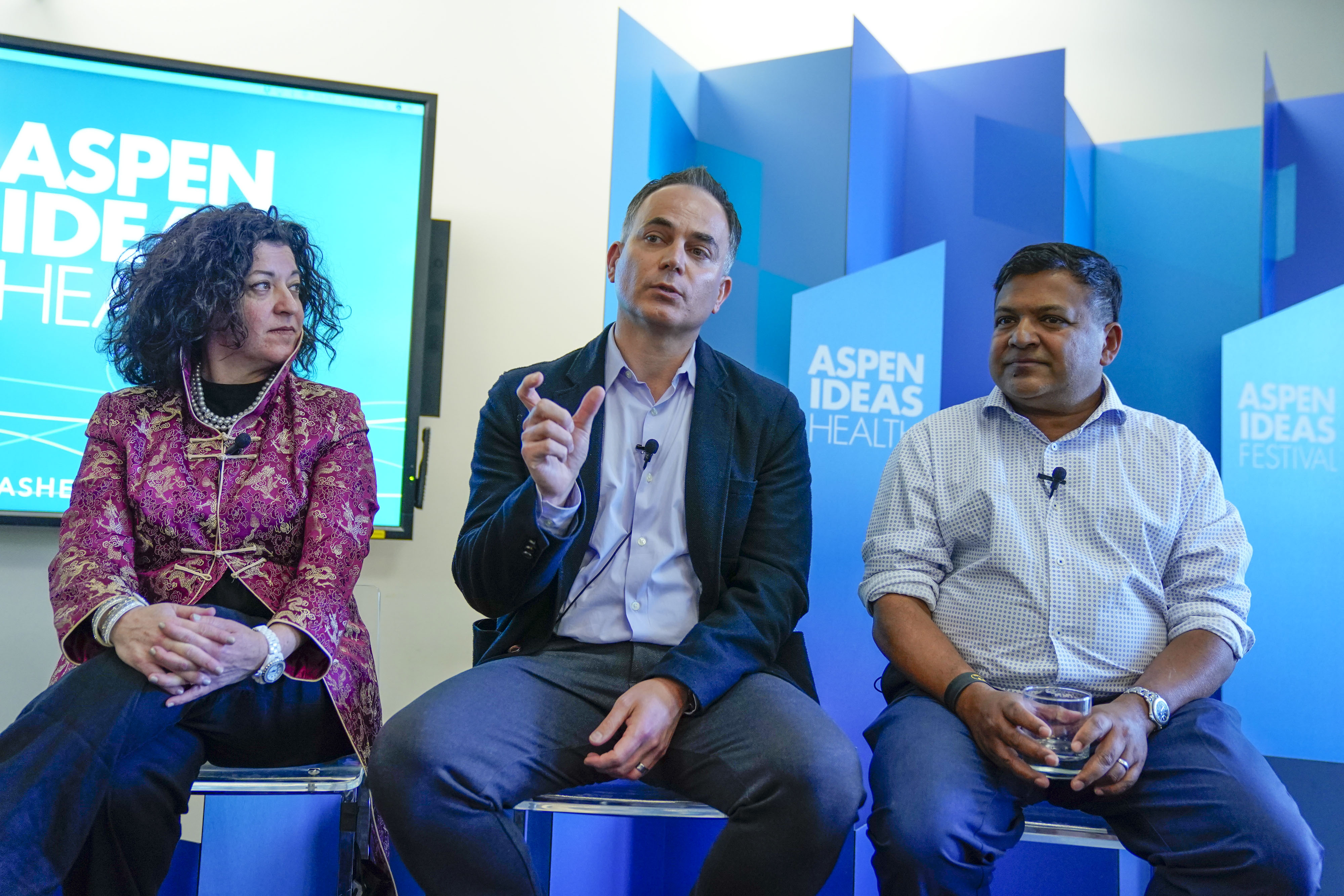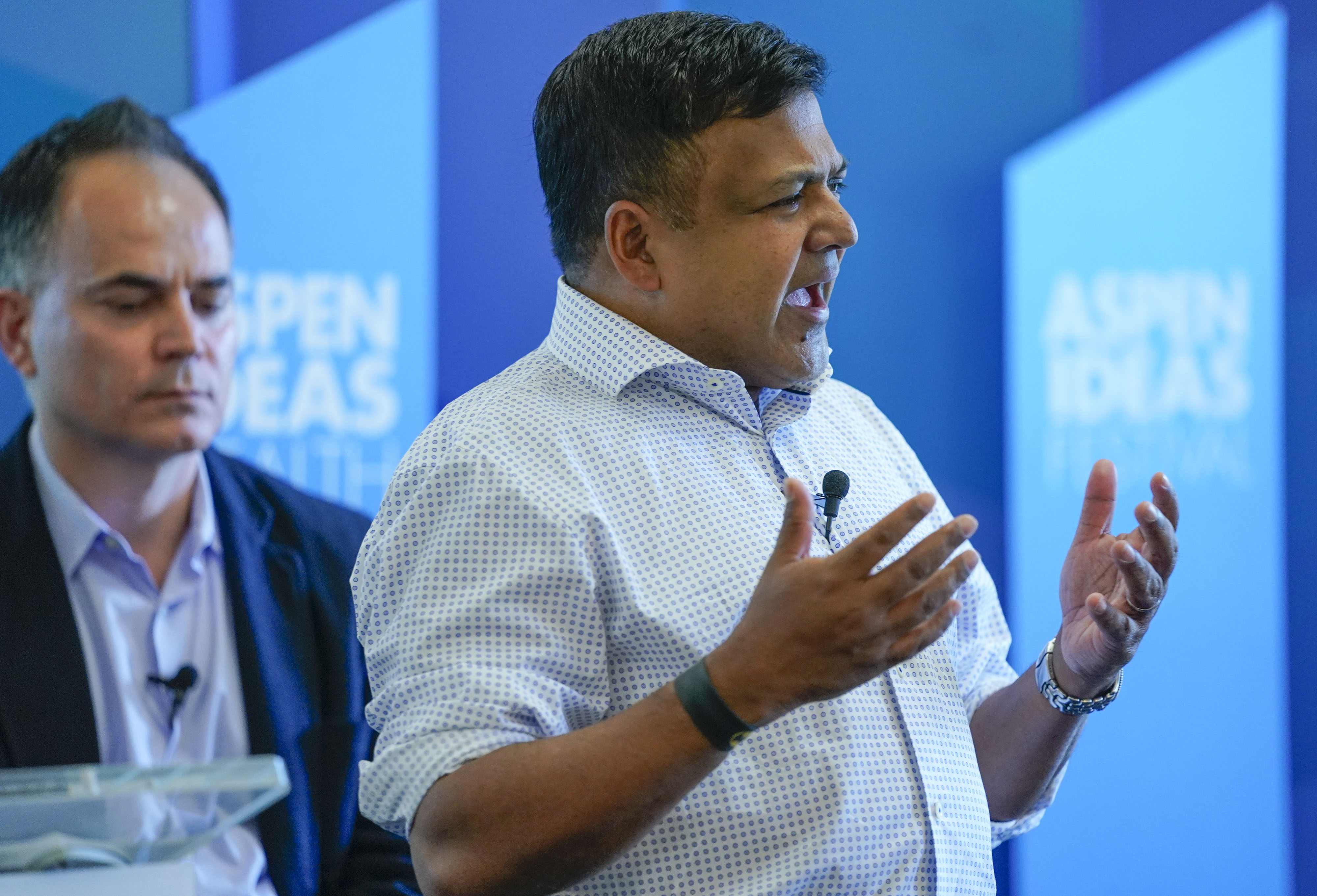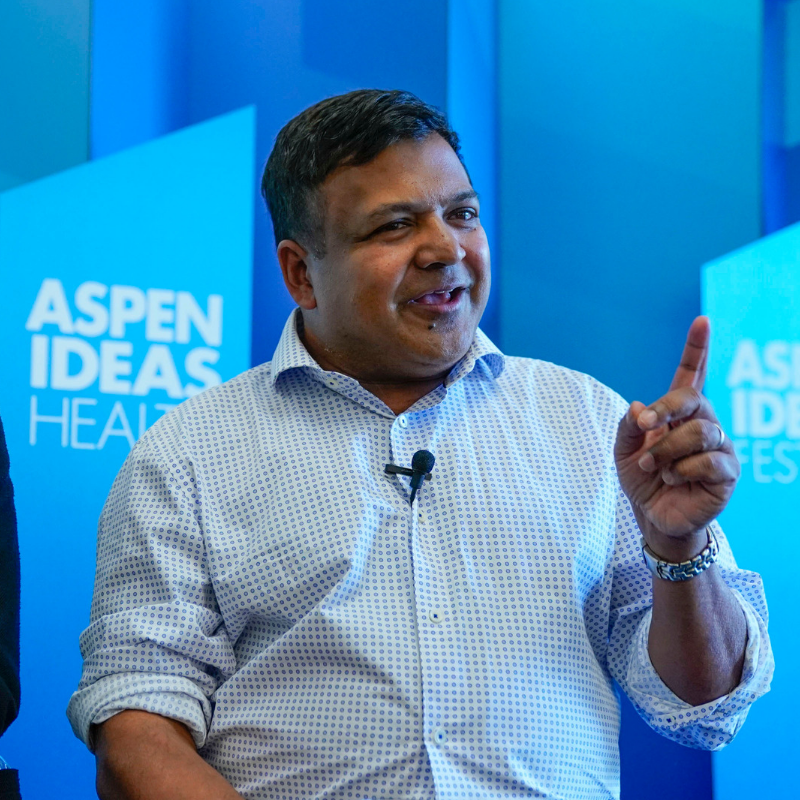Four Ways Health Innovators Fellows Are Making Health Care More Just
Read on for four ways these Health Innovators are bringing “justice for all” to U.S. health care.
1. Eating Our Way to a Cure

2. Increasing Health Care Engagement in Low-Income Communities
Why do 60 percent of Medicaid patients miss their clinic visits? This is the question Lisa Fitzpatrick hoped to answer when she moved from her cushy D.C. condo to the city’s poorest neighborhood. Proximity to a problem can teach you a lot about possible solutions; Lisa learned that to get low-income communities like hers engaged in health care, she needed to focus on three things: trauma, distrust, and low health literacy. “[I] realized I was approaching this with a judgmental mindset. I was asking, ‘Why won’t people engage in health care?’ And I should have been asking, ‘Why would they?’” Lisa’s new organization, Grapevine Health, works to foster trust within low-income communities. Building upon these personal relationships, the organization educates individuals and helps them engage in their own health care.

3. Shifting from Granola and Yoga to Comprehensive, Evidence-Based Solutions
It’s not just patients who feel the impact of an unjust system. Every single day, a physician commits suicide—this is twice the rate of the general public. Alen Voskanian has experienced physician burnout as both a provider and a family member who lost his father in part due to a physician mistake made by a well-meaning doctor experiencing burnout. While there are many suggestions for how physicians should treat their burnout (e.g., yoga, meditation), these solutions don’t address burnout’s root causes. The focus of Alen’s work is just that—developing a multi-pronged, evidence-based approach to tackling the root causes of burnout. “With a crisis of this proportion, you'd think every health system would have a comprehensive, evidence-based plan in place. But, shockingly, that's not the case. Programs are piecemeal, and there's little evidence that they're effective.” Alen’s multi-year, physician-inclusive approach will pinpoint what works to help physicians across the nation.

4. Putting the “Care” Back into Patient Care
Rushika Fernandopulle has made waves in primary care with his original patient care model at Iora Health. Iora Health rebuilt its care model by replacing transactions with authentic patient-provider relationships. “Our outcomes are better than almost every other practice in the country. We're reducing hospitalizations by 40 percent, ER visits in half, total spend by 15 percent. We're putting money actually back in people's pockets.” However, this is only the beginning of the change he hopes to make. “The [health care] system is all geared to serving its needs and not ours.” To shift from today’s system to the one Americans deserve, Rushika is building a consumer-based social movement to demand a system that truly serves the patient. “Let’s [start] with the patient, the consumer, the people, and build up.”

You can view the full session here:
Learn more and connect with the Fellows:
- Saira Ramasastry, Managing Partner, Life Sciences Advisory
- Lisa Fitzpatrick, Founder, Grapevine Health
- Alen Voskanian, Medical Director, Cedars-Sinai Medical Group
- Rushika Fernandopulle, CEO, Iora Health

Other Recent Posts
Twenty-one senior health care leaders were chosen to join the Aspen Institute Health Innovators Fellowship’s sixth class and the program’s network of health care entrepreneurs and innovators from across the United States. These leaders will embark on a two-year Fellowship that will strengthen their leadership and challenge them to develop new ...
Welcome to Aspen Health Innovators: Behind the Mask. In this three-episode podcast miniseries, go behind the masks leaders wear and explore the values and tensions at the heart of the decisions they make. Join Aspen Health Innovators Fellow Indu Subaiya as she speaks with U.S. health care leaders—all members of the Health Innovators Fellowship—to ...
Aspen Health Innovators Fellows were featured in the Winter 2019/20 edition of the Aspen IDEAS magazine. Ikenna Okezie (Class 1), Odette Harris (Class 4), and Garheng Kong (Class 3) share their stories of how their Fellowship experiences are leading to impactful action through their leadership ventures. Click here to read the full article on ...
21 senior health care leaders were chosen to join the Health Innovators Fellowship's fifth class and the program's network of health care entrepreneurs and innovators from across the US. Fellows from this class hail from all parts of the country and work across the health care ecosystem, with expertise ranging from mental health and medicine to ...
The debate about U.S. health care can seem never-ending, but Health Innovators Fellows are working to break through the noise. Last week, members of the Health Innovators Fellowship’s third class shared how they are addressing injustices in U.S. health care at Aspen Ideas: Health 2019. Their session, “And Justice for All,” focused on inadequate ...


Leave a Comment